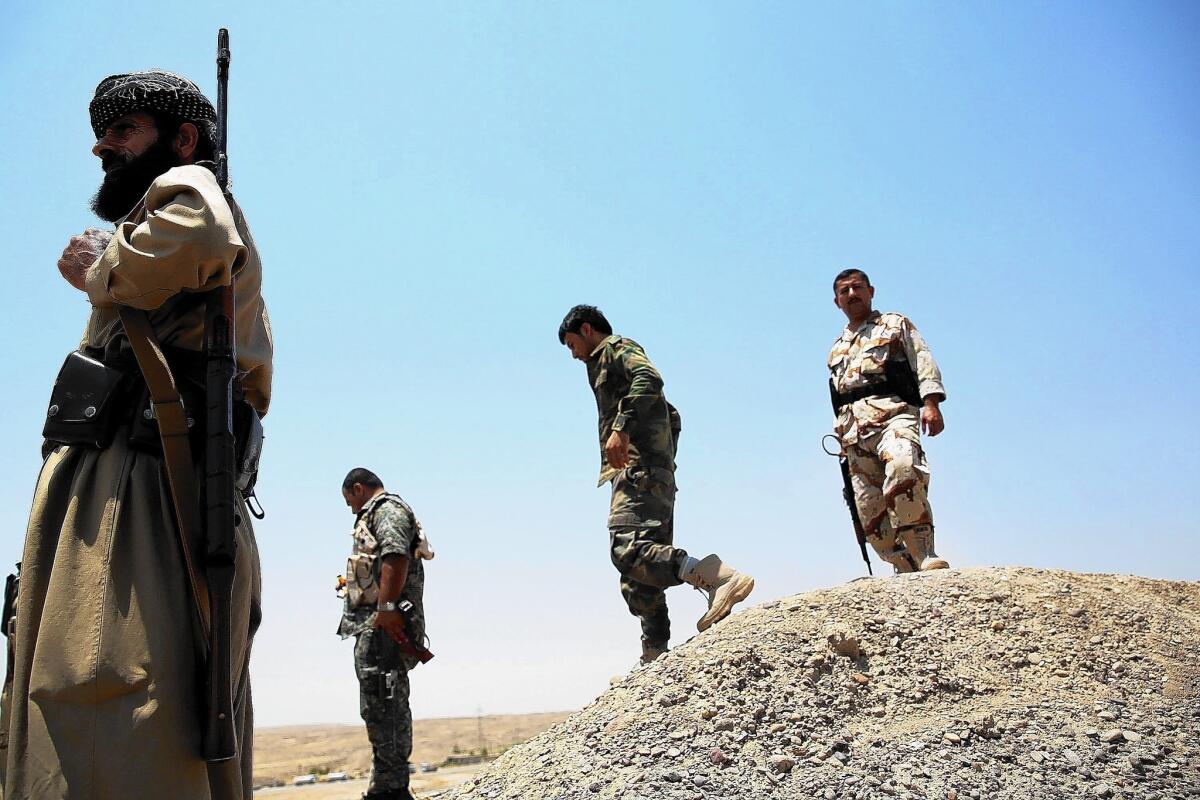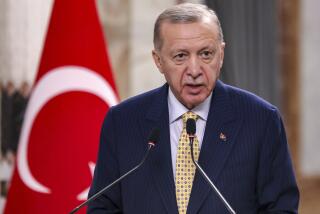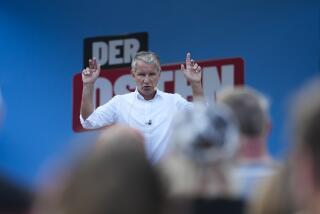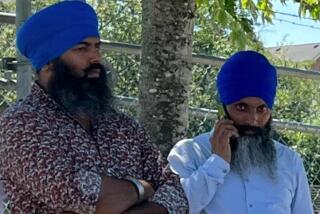Common enemy Islamic State draws Kurdish factions together

One unanticipated result of the military advances by Sunni Muslim extremists in northern Iraq has been the formation of a unified opposition front composed of oft-divided Kurdish factions in three nations: Iraq, Syria and Turkey.
Last week, Massoud Barzani, president of Iraq’s semiautonomous Kurdistan region, paid a visit to fighters with the Kurdistan Workers Party, or PKK, an unusual event since relations between the PKK and the government of Iraqi Kurdistan have long been strained. The visit came after PKK guerrillas joined with Iraqi Kurdish peshmerga forces to oust Islamic State militants from the town of Makhmour, near Irbil, the Kurdish capital in Iraq.
During his trip to Makhmour, where the secular, leftist PKK has a heavily defended camp, Barzani hailed PKK members as “brothers,” according to video circulated online. He also called Islamic State a common enemy of the Kurdish people.
The PKK is regarded as a terrorist organization by two of Iraqi Kurdistan’s closest allies, the United States and Turkey. But the threat posed by Islamic State extremists has fostered unity among rival Kurdish groups, at least for now.
The PKK has waged a three-decade war against the Turkish government. Its battle-hardened fighters have considerably more recent combat experience than the peshmerga troops of northern Iraq. When Islamic State fighters attacked Makhmour this month, Iraqi peshmerga forces promptly withdrew, a retreat that brought condemnation from many Kurds. PKK fighters, on the other hand, held their ground on the periphery of Makhmour.
In addition, the PKK and its Syrian Kurdish allies have played a central if largely unheralded role in rescuing tens of thousands of Iraqi Yazidis, the Kurdish-speaking religious minority forced to flee the Islamic State onslaught.
Yazidis, who adhere to an ancient non-Muslim faith, were ordered to convert or be killed, and many left for the barren slopes of Mt. Sinjar, where they were trapped by the Sunni extremists.
President Obama has credited U.S. airstrikes and humanitarian airdrops with saving the besieged Yazidis. But while the American actions certainly helped, rescued Yazidis and aid workers say the bulk of the credit should go to militiamen of the PKK’s Syrian affiliate, known as the People’s Protection Units. With the Syrian civil war raging on, Syrian Kurds have carved out a quasi-autonomous enclave in the country’s north and their forces have been some of the most effective against Islamic State, an Al Qaeda offshoot.
It was Syrian Kurdish militiamen and their allies with the PKK — along with peshmerga forces from Iraqi Kurdistan — who helped create a crucial humanitarian corridor that provided Yazidis with safe passage off their mountain redoubt, according to witnesses and survivors.
The Kurds in Syria are fighting off a major Islamic State offensive targeting the northern Syrian city of Ayn al-Arab, known as Kobani in Kurdish. Little word about that fierce battle has made its way to the outside world.
The Kurds say the Sunni militants are fighting for Ayn al-Arab with U.S.-made Humvees and other weapons seized from fleeing Iraqi government forces. Kurdish volunteers from various nations have arrived to assist in the defense of the city, which has been in Kurdish hands for two years.
More to Read
Sign up for Essential California
The most important California stories and recommendations in your inbox every morning.
You may occasionally receive promotional content from the Los Angeles Times.










